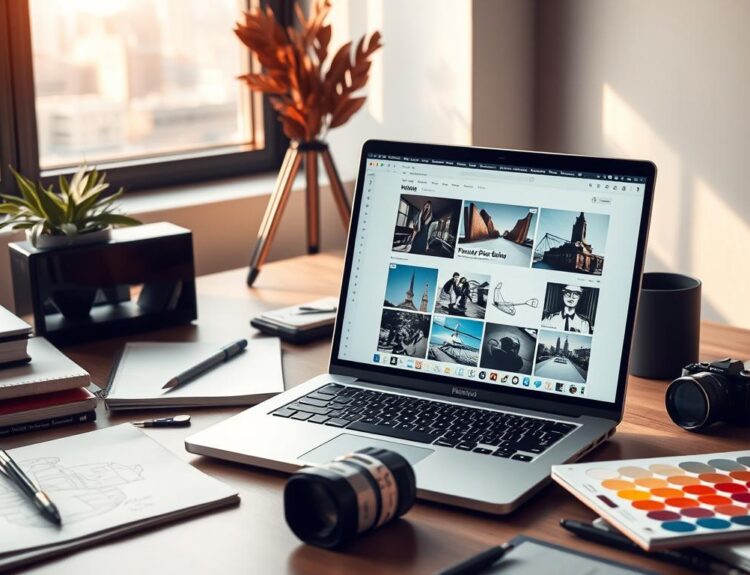Starting a new career is both thrilling and nerve-wracking. But, acing your job interview is key to landing your dream job. This guide offers top tips to help you shine in your next interview and outdo others.

Getting ready for an interview is crucial. Learn as much as you can about the company and the job. This will show you understand what they’re looking for. Also, make sure your resume and cover letter are perfect. It shows you’re serious and detail-oriented.
Key Takeaways
- Conduct thorough research on the company and role to understand their needs and priorities
- Prepare a well-organized set of professional documents, including your resume and cover letter
- Plan your interview outfit and logistics to ensure a seamless and confident experience
- Master effective communication skills to convey your qualifications and enthusiasm
- Anticipate and prepare responses to common interview questions, including behavioral and technical queries
- Be ready to discuss salary and benefits negotiations, if appropriate
- Remain poised and adaptable throughout the interview process
Essential Pre-Interview Preparation Strategies
Getting ready for a job interview is more than just showing up. To do well, you need to put in effort before the interview. This preparation will help you make a good first impression and show you really want the job.
Researching the Company and Role
Doing company research is key. Learn about the company’s history, mission, values, and what they do. Also, find out about their current challenges and goals. This info lets you tailor your answers and show how you fit the job and the company.
Preparing Your Professional Documents
Make sure your resume preparation is top-notch. Check and improve your resume, cover letter, and other important documents. Practice explaining your background and experiences briefly during the interview.
Planning Your Interview Outfit and Logistics
Think carefully about your interview attire and get there early. Pick a professional outfit that boosts your confidence. Plan your travel, arrival time, and other details to be on time and calm on the interview day.
By researching the company, preparing your documents, and planning your interview, you’ll be ready to succeed. You’ll make a great impression on your future employer.
Mastering Your Job Interview Communication
Getting a job is not just about answering questions. It’s about showing who you are and why you’re the best fit. Learning how to use your interview body language, active listening, and verbal communication skills is crucial. These skills can help you make a strong impression on your future boss.
Start by paying attention to your nonverbal cues. Keep eye contact, sit up straight, and don’t fidget. A confident look can show you’re interested and professional. Also, practice listening by nodding, repeating back what you heard, and asking smart questions. This shows you’re engaged and understand the conversation.
When talking, pick your words wisely. Speak clearly, skip unnecessary words, and keep your answers short and to the point. Show your excitement for the job by talking about your skills and experiences. Remember, an interview is a two-way conversation, not just a one-way question session.

By improving your communication skills, you’ll show confidence, enthusiasm, and real interest in the job. This can help you stand out and get the job you want.
Common Job Interview Questions and Winning Responses
Getting ready for different interview questions is key to doing well. You’ll face questions that test your problem-solving and technical skills. Learning to answer these questions well is crucial to show you’re the right fit.
Behavioral Interview Questions
Behavioral questions use the STAR method to learn about your past experiences. They want to know how you solve problems and make decisions. Share stories that show your skills and the good results you’ve gotten.
This way, you can prove you’re right for the job and what you can offer.
Technical and Role-Specific Questions
Technical questions check if you know your stuff and can use it on the job. Study the job description and keep up with industry news. Practice answering these questions so you can show off your skills.
Be clear and give examples of your successes and how you solved problems.
Salary and Benefits Discussion
Talking about salary and benefits needs care. Know what you’re worth based on your skills and experience. When it’s time to talk money, explain why you’re worth it and negotiate well.
Remember, the employer has a budget too. Be confident, flexible, and aim for a deal that works for both sides.






